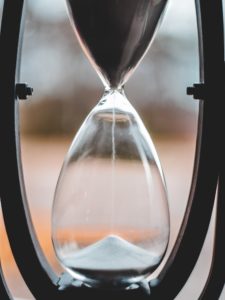
A wise woman once told me, “When you tell your story, you give someone a gift.” I did not really understand what she meant at the time. How can my story be a gift to you? How can your story be a gift to me? Do they matter that much?
Yes, they do. Stories are gifts. Stories are bridges. Stories are our history and the history of those who came before us. Stories connect us. Stories teach understanding. Stories make us laugh and make us cry. They make us feel deeply. They pull us in to someone else’s life. And we start making the connections with ours.
Stories are all around us. They are the songs we listen to. They are the family histories told at gatherings. They are the friends reminding us of our shared adventures. They are the podcast that you listened to or the Ted Talk that you heard and cannot stop thinking about. They are our children’s retelling of their day and our grandparent’s retelling of their youth. They are in the memoir we just read and the wikipedia bio we just checked out. They are in the documentary we watched and can’t shake. They are in the whispered confidence of a dear friend.
Sharing our stories helps us to remember and also to move on. Stories make us feel less alone. They make us pause and think. They remind us of the past and give hope to the future. They give rise to sharing and give rise to growth.
My favorite stories? The underdog stories. So many variations, but the same message. It’s possible.




 “You are the best hugger.” Hear that many times? Empaths and highly sensitive people do. Our hugs stand out to those on the receiving end. We hug with gusto. We hug with sincerity. We hug with intimacy. We hug with deliberation. We can’t half hug. We hug you all the way (or not at all). Because we know the healing power of a warm embrace by instinct, and we are all in.
“You are the best hugger.” Hear that many times? Empaths and highly sensitive people do. Our hugs stand out to those on the receiving end. We hug with gusto. We hug with sincerity. We hug with intimacy. We hug with deliberation. We can’t half hug. We hug you all the way (or not at all). Because we know the healing power of a warm embrace by instinct, and we are all in. End of the year work party. Outside, late afternoon slips into June’s dusky twilight. We congregate in small groups in lawn chairs. Sharing and caring before we drift off into summer activities. And I am thinking of the lyrics “I want something just like this….”
End of the year work party. Outside, late afternoon slips into June’s dusky twilight. We congregate in small groups in lawn chairs. Sharing and caring before we drift off into summer activities. And I am thinking of the lyrics “I want something just like this….” We are all walking histories with stories to tell. Memorable stories. Meaningful stories. Heartfelt stories. Funny stories. Stories of family, of friends, of pets. Stories of missteps and misadventures. Stories of how our hearts broke and how they got repaired. Stories of lessons learned the hard way. Milestone stories that remain markers on our timelines.
We are all walking histories with stories to tell. Memorable stories. Meaningful stories. Heartfelt stories. Funny stories. Stories of family, of friends, of pets. Stories of missteps and misadventures. Stories of how our hearts broke and how they got repaired. Stories of lessons learned the hard way. Milestone stories that remain markers on our timelines. Same boat syndrome. When you are (often unexpectedly) in the same situation as someone else. A synchronicity of sorts. You are stuck with a stranger in a situation and temporarily bond. And I can tell you, it’s good to have an empath in the boat. And often you are the empath in the boat.
Same boat syndrome. When you are (often unexpectedly) in the same situation as someone else. A synchronicity of sorts. You are stuck with a stranger in a situation and temporarily bond. And I can tell you, it’s good to have an empath in the boat. And often you are the empath in the boat.